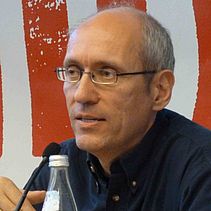Anyone who thought the globalised world could not be stopped anymore has been proven wrong in the last two weeks. Not the million-strong Fridays for Future movement, but an inconspicuous virus is bringing international air traffic to and from the global economic center of China to a standstill, more and more countries are evacuating their citizens as if a war had broken out and imposing entry bans.
The "save yourself who can" reflex
This is exactly what the World Health Organization wanted to avoid with its emergency committee, but the proclamation of the "public health emergency of international concern" on 30.01.2020 seems to have exactly the opposite effect. Instead of a common determination of the world community to pull together now and to cooperate in researching the virus, a vaccine and, if necessary, also mutual support in the follow-up/interruption of infection chains and care of the affected patients*, the traditional reflexes of "save yourself who can" are mobilized. The same happens to the global economic center China what happened in 2014 with the West African states in the Ebola crisis.
At that time, too, international air traffic and trade with Guinea, Sierra Leone and Liberia collapsed contrary to the recommendations of the WHO, neighbouring countries closed their borders and international aid organisations had massive difficulties in recruiting sufficient aid personnel for their missions.
Calculations are already being made as to what percentage of China's economic growth will collapse in 2020. With slightly more than 250 registered deaths (almost all in the People's Republic of China) and close to 12,000 confirmed infections, the case-fatality rate of the new virus is still well below that of SARS 2003, and the overall impact far from the death toll of a "normal" flu winter, which is regularly estimated at more than half a million worldwide.
More worrying than the virus
More worrying than this current development of the corona virus outbreak, therefore, seems to be the fact that the massive restrictions on the freedom of movement for millions of Chinese citizens* are apparently considered necessary and justified by the WHO and the international community.
There must be concern about how quickly fundamental human rights are restricted on the base of assumptions rather than clear knowledge about the danger of the current situation. And how quickly the criticism of the authoritarian Chinese control regime disappears when it comes to the supposed own protection against dangerous germs. But the right to health must not be played off against other human and civil* rights, such as the freedom of movement. The protests of the population, which have become known despite intensive censorship by the Chinese authorities, show that instead of acting with a sense of proportion and rational arguments, a repressive state power is acting to demonstrate its ability to act to the international public.
WHO recommendations fall on deaf ears
Instead of a balanced and clear position on the rights of the people in the concerned cities of China, WHO Director General Dr. Tedros has supported the massive confinement with a lightning visit to the Chinese President Xi Jinping, which was prominently featured in the media, and has further fuelled the drama of the situation, in which the recommendation of his own emergency committee to the member countries of the WHO to refrain from travel and trade restrictions falls on deaf ears.
A genuine solidarity-based approach to the crisis must be different. Coping with such an epidemic cannot be a matter for experts* and governments alone, important as they are, without genuine involvement and informed participation of those affected. Weak health systems in particular will be massively overstretched and authoritarian control measures will escalate the situation further, as is sufficiently known from the Ebola crisis of 2014/15.



